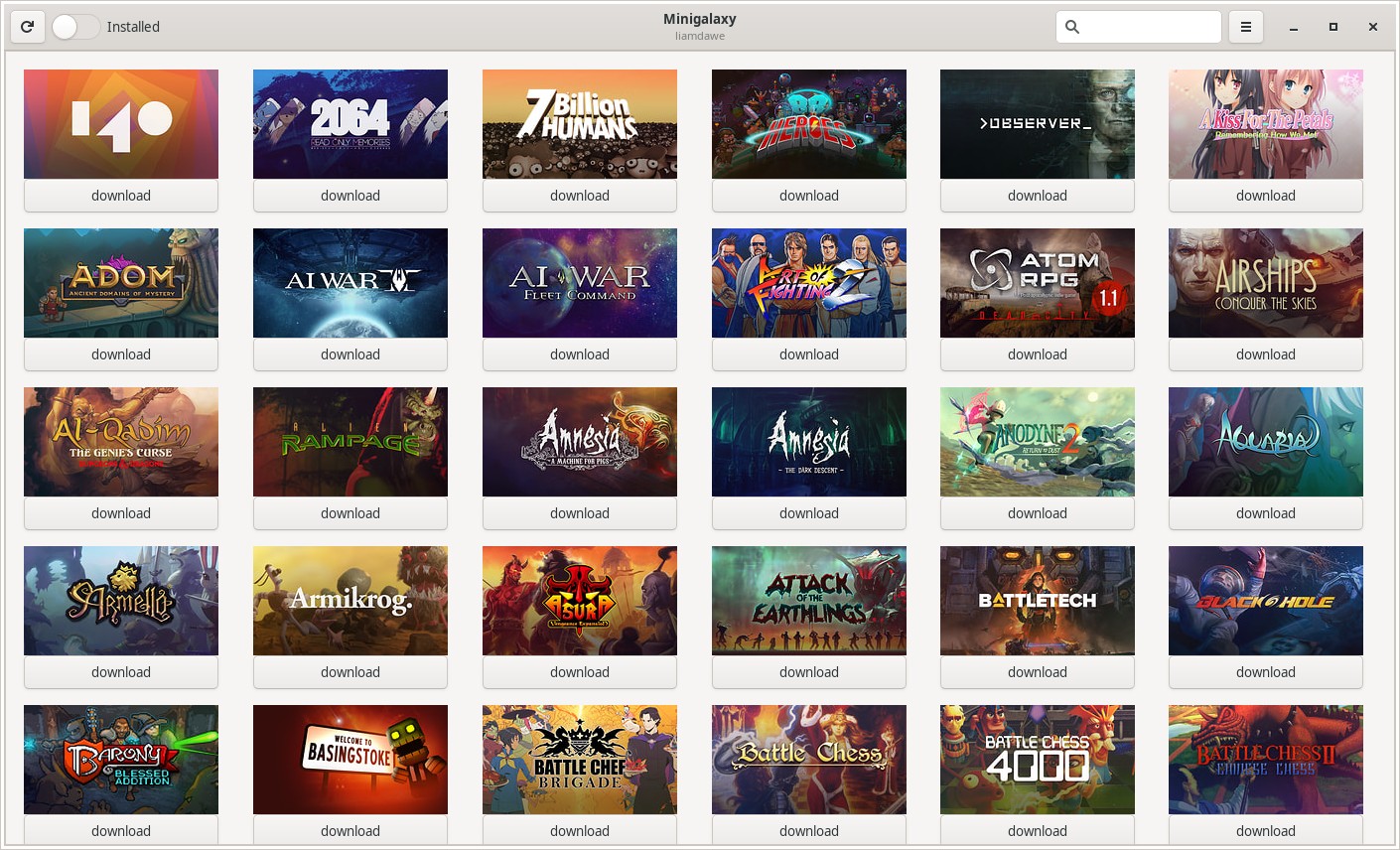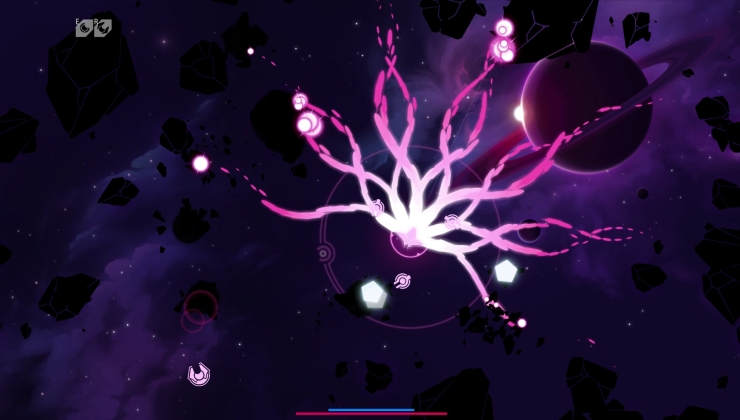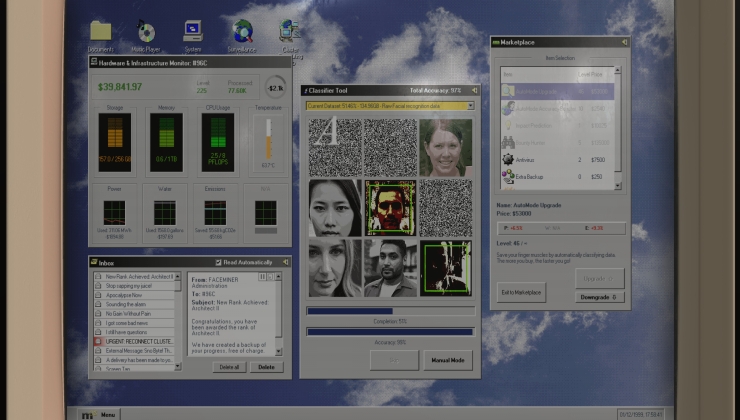Find getting your Linux games from GOG a bit of a hassle since they don't support Galaxy on Linux yet? Enter the free and open source application Minigalaxy. It's being developed by Wouter "sharkwouter" Wijsman who also works on VaporOS, a special build of SteamOS with a ton of extra enhancements.
Currently quite simple, it allows you to login and access your entire GOG library to download and play. You can pick your language, adjust install location, search and a bit more. A little rough around the edges, but once this gets further along it could be a nice little GOG client for Linux users.
It's comparable to Games Nebula, another open source GOG client for Linux although that hasn't seen a released since June 2018, sadly. So it's good to see someone else come along to try and smoothen-out the process of getting GOG games on Linux (other than downloading from GOG directly). You could use Lutris, but Lutris does a lot and can be confusing. The key point here about Minigalaxy is that it's streamlined.
The developer has plans to extend Minigalaxy, for updating games and actually remove games once installed.
You can find it on GitHub, Arch/Manjaro users can grab it from the AUR.
since they don't support Galaxy on Linux yetYou know, there is optimism, and then there is naivety...
I am the forever optimist, don't judge me :Psince they don't support Galaxy on Linux yetYou know, there is optimism, and then there is naivety...
since they don't support Galaxy on Linux yetYou know, there is optimism, and then there is naivety...
sadly, it seems you are right :/
And even if there is a proper FOSS alternative, i'm not willing to throw money on a company with that attitude towards linux...
Will install it as soon as I get home. Always grateful to this kind of community efforts :)
GOG is DRM free, but doesn't support Linux with its client.
Steam heavily supports Linux, but are very DRM... though not as much as Stadia.
Itch is wonderful, but is very lacking in many different genres.
Oh well, it's the dawn of a new decade, who knows what the 2020's will bring.
Oh well, it's the dawn of a new decade, who knows what the 2020's will bring.
On the short run, stagnating Linux gamer percentage, declining growth of games supported by proton (because low and medium hanging fruits have been harvested already), less new native games (You do have Proton alright!?).
On the long run, the last console generation, cloud gaming. So you could say we're first class citizens finally... in a gaming world most of us don't fancy.
While I'd like to see gog galaxy get a gnu/linux version, that this kind of application can be written by the community is what I approve of most.
The problem is not the client, but lack of Galaxy support for the Linux titles on the server. There is nothing community can do about that.
Oh well, it's the dawn of a new decade, who knows what the 2020's will bring.Linux gaming didn't succeed until we get the equivalent of buying a game on Steam, which launches into Origin, which launches the game with all of Steam, Origin and Games For Windows Live active at the same time :D
In principle, I like what GOG does and Valve needs good competition to stay honest. My one question is: Do any of these FOSS clients support incremental updates? Downloading 2GB+ every time a dev patches their game is another reason I don't use GOG as much.
less new native games
Fewer.
https://copr.fedorainfracloud.org/coprs/atim/minigalaxy/
My one question is: Do any of these FOSS clients support incremental updates? Downloading 2GB+ every time a dev patches their game is another reason I don't use GOG as much.
lgogdownloader and wyvern do, when using Galaxy protocol (so for Windows builds). For Linux builds GOG doesn't support Galaxy protocol on the backend, so they rely on the hack of using zip offsets over HTTP, so it kind of works, but it's a hack.
Last edited by Shmerl on 27 Dec 2019 at 7:47 pm UTC
Perhaps, but I'd rather not rely on proprietary software to play my games. It's one thing about Steam I don't like, and I'd abandon GOG if they went the same route.
Sure, I'm not saying anyone should use the blob client. I'm just saying that community can't make a proper client yet at least in case of Linux builds, due to GOG not enabling Galaxy protocol for them. It works for Windows builds, that's why FOSS clients like lgogdownloader and wyvern can do incremental updates for them properly. For Linux builds they use a hack I described above.
Last edited by Shmerl on 27 Dec 2019 at 7:53 pm UTC
*sigh* The state of Linux gaming...
GOG is DRM free, but doesn't support Linux with its client.
Steam heavily supports Linux, but are very DRM... though not as much as Stadia.
Itch is wonderful, but is very lacking in many different genres.
Oh well, it's the dawn of a new decade, who knows what the 2020's will bring.
Decade starts on a year ending with 1, and doesn't end until end of 2020 thanks to Dionysius Exiguus.
[GameHub](https://github.com/tkashkin/GameHub) is a great alternative to this, and GOG Galaxy, it supports Steam and Humble too.
[GameHub](https://github.com/tkashkin/GameHub) is a great alternative to this, and GOG Galaxy, it supports Steam and Humble too.
GameHub is barely usable with library > 1000 games. Laggy as hell, eat ~900 MB RAM right from start.
Last edited by Tim on 27 Dec 2019 at 11:49 pm UTC
Interesting. Thanks for explaining the details.My one question is: Do any of these FOSS clients support incremental updates? Downloading 2GB+ every time a dev patches their game is another reason I don't use GOG as much.
lgogdownloader and wyvern do, when using Galaxy protocol (so for Windows builds). For Linux builds GOG doesn't support Galaxy protocol on the backend, so they rely on the hack of using zip offsets over HTTP, so it kind of works, but it's a hack.
Let's hope GOG fixes the back-end and then FOSS clients can fill the gap.
*sigh* The state of Linux gaming...
Be thankful for what you have. We've come a long way in just five years, for example. Rome was not built in a day. There's already more games for Linux than I have time to play.













 How to set, change and reset your SteamOS / Steam Deck desktop sudo password
How to set, change and reset your SteamOS / Steam Deck desktop sudo password How to set up Decky Loader on Steam Deck / SteamOS for easy plugins
How to set up Decky Loader on Steam Deck / SteamOS for easy plugins
See more from me